Cloth is a valuable resource in Stardew Valley. As you progress through the game, this relatively advanced crafting material will cross your path, making you wonder how you can get Cloth in Stardew Valley.
While acquiring a steady supply of Cloth might seem daunting at first, there are several methods available. Some of these require planning and investment, while others offer more immediate solutions. Depending on your progression, you might choose certain methods above others to maximize your resources and time.
How do you get Cloth in Stardew Valley?
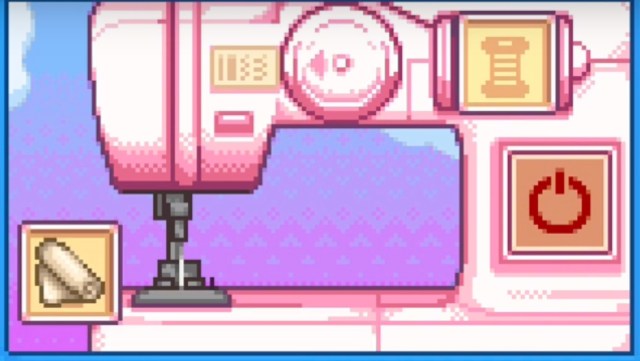
If you don’t have any Sheep yet, the easiest way to get Cloth in Stardew Valley is by friending Emily. She can send you cloth or wool, which you can then process into cloth, in the mail.
Alternatively, you can also use the following methods to Cloth in Stardew Valley:
- Process Wool in Looms: This is the most reliable method and involves raising sheep or rabbits. Shear these animals for Wool and turn them into cloth using a loom. Unlocking the loom recipe requires reaching Farming Level seven.
- Recycling Soggy Newspapers: Fishing can sometimes yield soggy newspapers. Recycling this unwanted item in a recycling machine can produce cloth.
- Skull Cavern Loot: Mummies found in the Skull Cavern occasionally drop cloth.
- Desert Trader: The Desert Trader in Calico Desert trades cloth for three Aquamarines, though he only does this deal on Wednesdays.
How do you turn Wool into Cloth in Stardew Valley?
Transforming wool into cloth requires a Loom in Stardew Valley. The Loom unlocks when you reach Farming Level Seven. It is crafted using 60 Wood, 30 Fiber, and one Pine Tar. Once you have your Loom constructed and placed on your farm, you’ll need to collect Wool from Sheep or Rabbits. Add this Wool to your Loom and wait for it to process for four hours.
What is Cloth Used For in Stardew Valley?
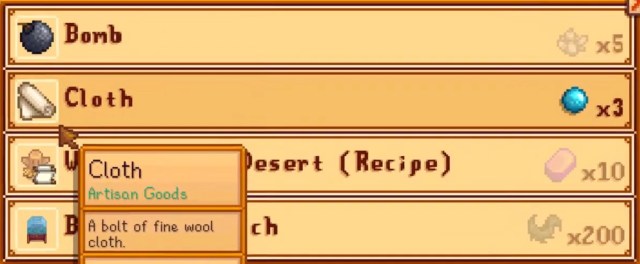
Cloth serves a multitude of purposes in Stardew Valley. It’s the base material for crafted outfits and clothing items in the game, an essential ingredient for crafting Dressed Spinner, and a valuable resource when buying a mill. You can also gift it to townspeople who might appreciate such kind gestures.


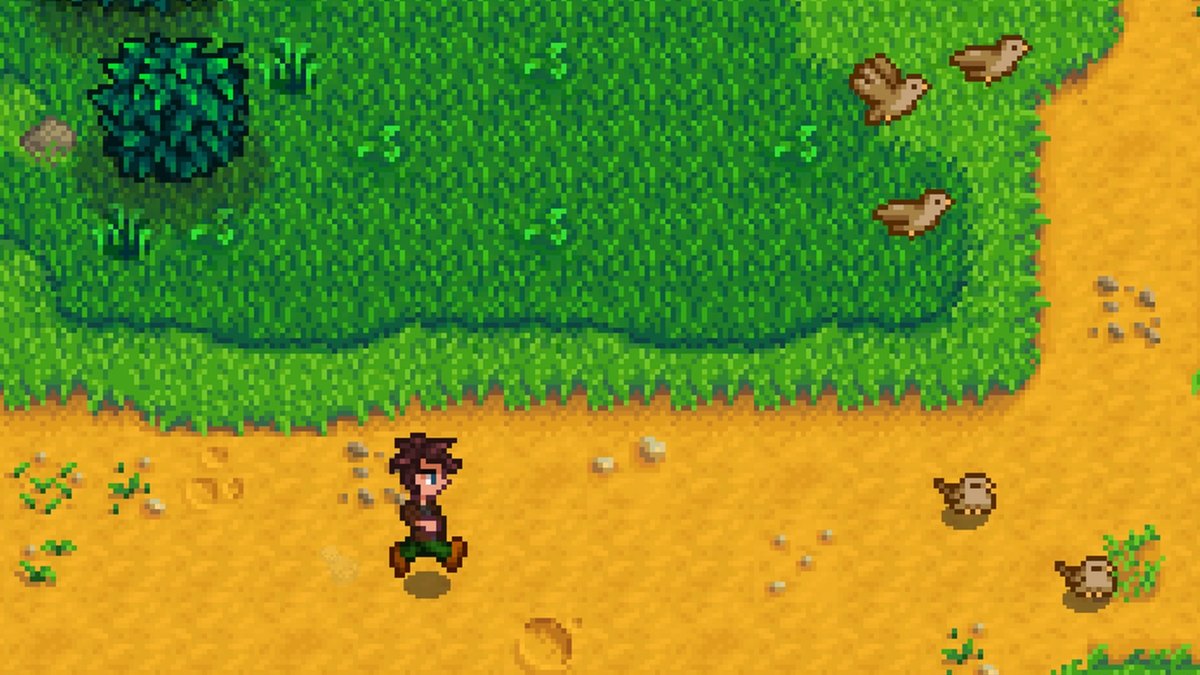


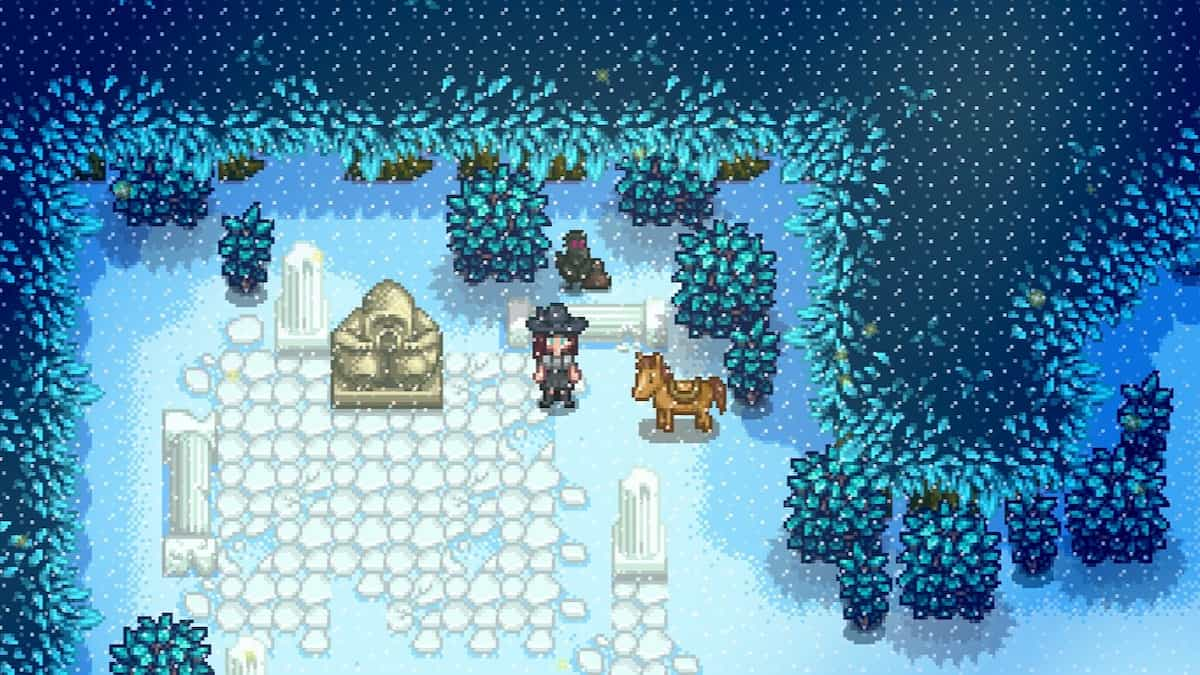
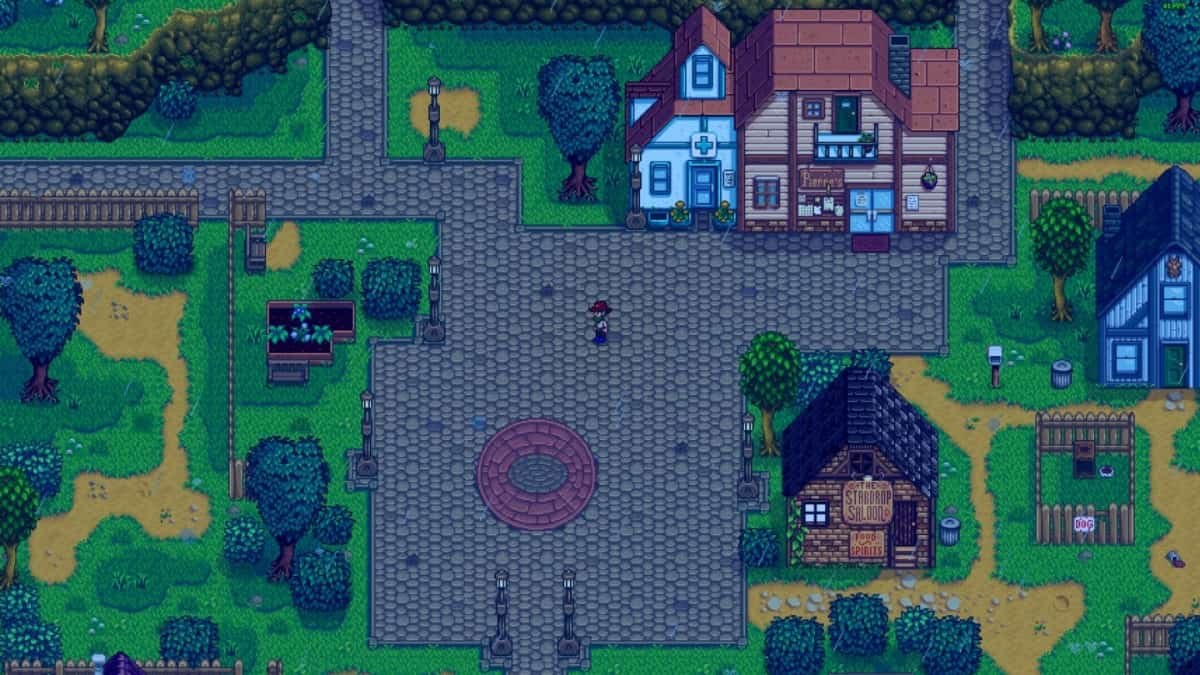
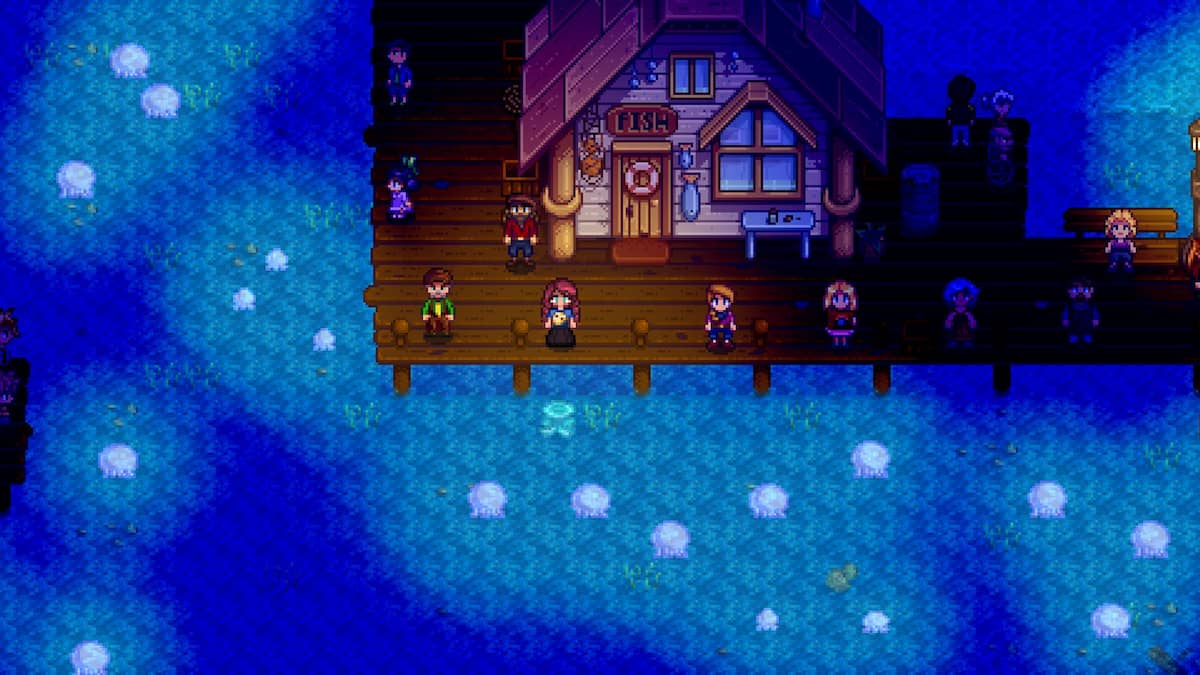





Published: Apr 14, 2024 10:24 pm